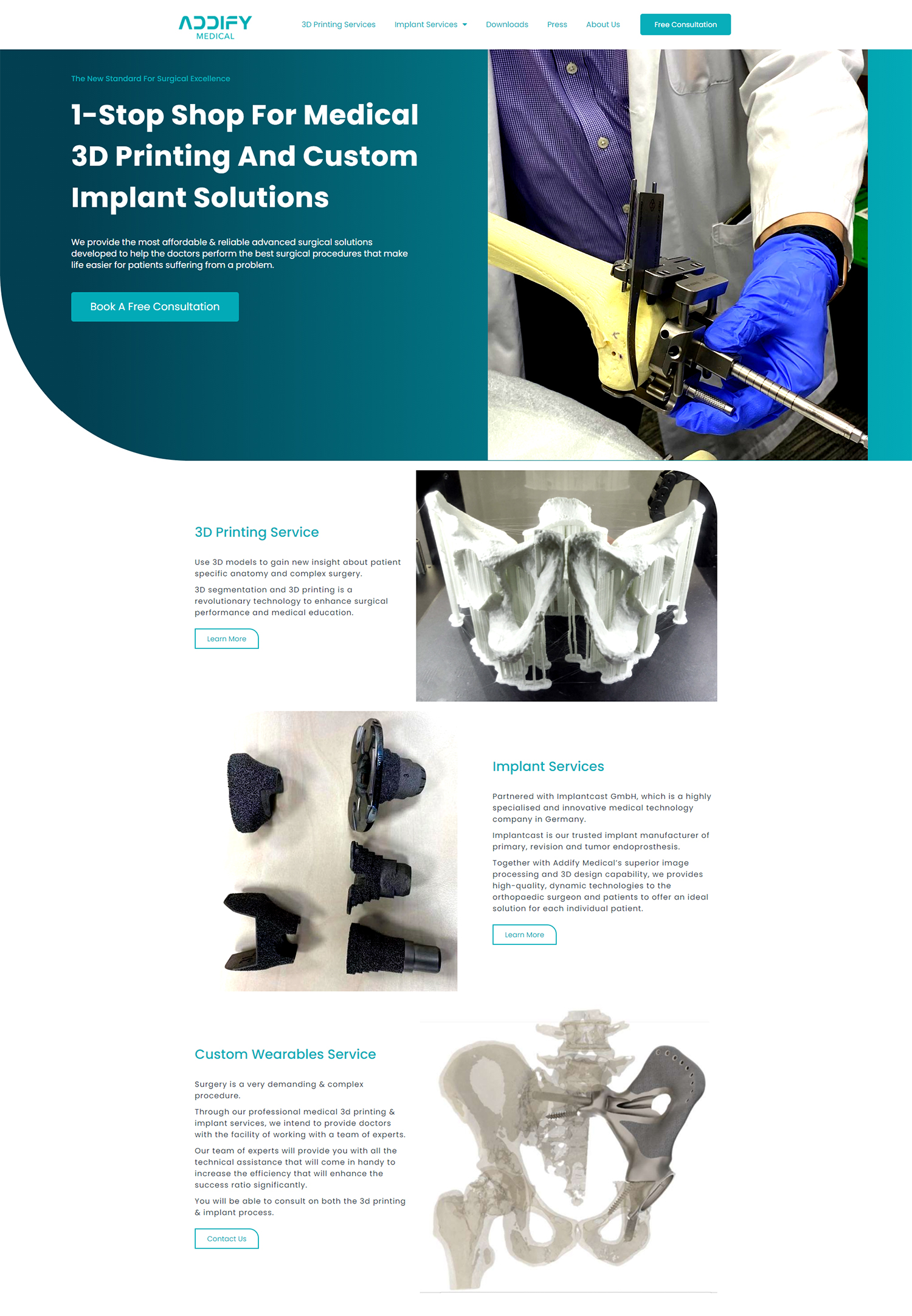In today’s digital age, the significance of web marketing for lawyers cannot be overstated. As we navigate through an increasingly competitive legal landscape, it becomes evident that having a robust online presence is no longer optional; it is essential. Potential clients are turning to the internet to seek legal advice, research law firms, and read reviews before making a decision.
This shift in consumer behavior underscores the necessity for law firms to invest in effective web marketing strategies that not only attract clients but also build trust and credibility. Moreover, web marketing allows us to reach a broader audience than traditional marketing methods ever could. With the right online strategies, we can connect with potential clients who may not have been aware of our services otherwise.
By utilizing various digital platforms, we can showcase our expertise, share valuable insights, and engage with our audience in real-time. This level of interaction fosters a sense of community and positions us as thought leaders in our respective fields, ultimately leading to increased client acquisition and retention.
Key Takeaways
- Web marketing is crucial for lawyers to reach potential clients and establish credibility in the digital age.
- Building a strong online brand for law firms involves creating a professional website and maintaining a consistent brand image across all online platforms.
- Social media can be a powerful tool for lawyer marketing, allowing firms to connect with their audience and share valuable content.
- Creating engaging content for lawyer websites, such as blog posts and informative articles, can help attract and retain clients.
- Leveraging search engine optimization (SEO) techniques can improve a lawyer website’s visibility and attract more organic traffic.
- Measuring success and adjusting strategies for online presence is essential for lawyers to stay competitive and relevant in the digital landscape.
Building a Strong Online Brand for Law Firms
Establishing a strong online brand is crucial for law firms aiming to differentiate themselves in a crowded marketplace. Our brand is more than just a logo or a catchy tagline; it encompasses our values, mission, and the unique services we offer. To create a compelling online brand, we must first identify what sets us apart from our competitors.
This could be our specialized areas of practice, our commitment to client service, or our innovative approach to legal solutions. By clearly defining our brand identity, we can communicate our value proposition effectively to potential clients. Once we have established our brand identity, consistency across all online platforms is key.
This includes our website, social media profiles, and any other digital touchpoints. A cohesive brand image not only enhances recognition but also builds trust with our audience. We should ensure that our messaging, visuals, and tone reflect our brand values consistently.
Additionally, engaging with our audience through storytelling can humanize our brand and create emotional connections, making it easier for potential clients to relate to us and choose our services over others.
Utilizing Social Media for Lawyer Marketing
Social media has emerged as a powerful tool for lawyer marketing, offering us the opportunity to connect with potential clients on a more personal level. Platforms like Facebook, LinkedIn, Twitter, and Instagram allow us to share valuable content, engage with followers, and showcase our expertise in real-time. By actively participating in conversations relevant to our practice areas, we can position ourselves as approachable and knowledgeable professionals.
This not only helps in building relationships but also enhances our visibility in the digital space. Furthermore, social media provides us with valuable insights into our audience’s preferences and behaviors. By analyzing engagement metrics and feedback from our followers, we can tailor our content to better meet their needs. This data-driven approach enables us to refine our marketing strategies continuously.
Additionally, leveraging social media advertising can amplify our reach and target specific demographics, ensuring that our message reaches those who are most likely to require our services. In this way, social media becomes an integral part of our overall marketing strategy.
Creating Engaging Content for Lawyer Websites
| Metrics | Data |
|---|---|
| Website Traffic | 5000 visitors per month |
| Time on Page | Average of 2 minutes |
| Engagement Rate | 30% of visitors interact with content |
| Conversion Rate | 5% of visitors contact the firm |
Content is at the heart of any successful web marketing strategy for lawyers. Engaging content not only attracts visitors to our websites but also keeps them coming back for more. We should focus on creating informative and relevant content that addresses the questions and concerns of potential clients.
This could include blog posts, articles, videos, or infographics that provide insights into legal processes, recent case studies, or changes in legislation. By offering valuable information, we position ourselves as trusted resources in the legal field. Moreover, incorporating storytelling into our content can significantly enhance its appeal.
Sharing real-life experiences or client success stories can resonate with potential clients on an emotional level. It allows them to see the human side of our practice and understand how we can help them navigate their legal challenges. Additionally, we should ensure that our content is optimized for search engines by using relevant keywords and phrases.
This not only improves our visibility but also drives organic traffic to our websites, ultimately leading to increased client inquiries.
Leveraging Search Engine Optimization (SEO) for Lawyer Websites
Search Engine Optimization (SEO) is a critical component of web marketing that can significantly impact the visibility of our law firm online. By optimizing our websites for search engines, we increase the likelihood of appearing at the top of search results when potential clients look for legal services. This involves conducting keyword research to identify the terms and phrases that potential clients are using to find legal assistance.
By strategically incorporating these keywords into our website content, meta descriptions, and headings, we can improve our search engine rankings. In addition to keyword optimization, we should focus on enhancing the overall user experience on our websites. This includes ensuring that our sites are mobile-friendly, load quickly, and have intuitive navigation.
Search engines prioritize websites that provide a positive user experience, so investing in these aspects can yield significant benefits in terms of visibility and engagement. Furthermore, building high-quality backlinks from reputable sources can enhance our authority in the eyes of search engines, further boosting our rankings.
Measuring Success and Adjusting Strategies for Online Presence
To ensure the effectiveness of our web marketing efforts, it is essential to measure success regularly and adjust strategies accordingly. We should establish key performance indicators (KPIs) that align with our marketing goals, such as website traffic, conversion rates, social media engagement, and client inquiries. By analyzing these metrics, we can gain valuable insights into what is working and what needs improvement.
Additionally, we should remain flexible and open to adapting our strategies based on the data we collect. The digital landscape is constantly evolving, and what works today may not be as effective tomorrow. By staying informed about industry trends and emerging technologies, we can proactively adjust our marketing approaches to stay ahead of the competition.
Regularly soliciting feedback from clients can also provide us with insights into their experiences and expectations, allowing us to refine our services and enhance client satisfaction. In conclusion, web marketing is an indispensable aspect of modern legal practice that requires careful planning and execution. By understanding its importance, building a strong online brand, utilizing social media effectively, creating engaging content, leveraging SEO strategies, and measuring success regularly, we can establish a formidable online presence that attracts clients and fosters long-term relationships.
As we continue to navigate this digital landscape together, embracing these strategies will undoubtedly lead us toward greater success in serving our clients’ needs.
If you’re a lawyer looking to enhance your online presence and attract more clients, understanding the nuances of web marketing is crucial. While there isn’t a direct article focused on web marketing specifically for lawyers in the provided links, the article titled “7 Reasons Why Your Coaching Business Needs a Website and Digital Marketing” at Populis Digital can offer valuable insights. Although it targets coaching businesses, the principles discussed about the importance of a professional website and strategic digital marketing are highly applicable to legal practices as well. This resource can guide you in establishing a robust online platform that effectively communicates your services and expertise to potential clients.
FAQs
What is web marketing for lawyers?
Web marketing for lawyers refers to the use of online strategies and tactics to promote and advertise legal services. This can include website optimization, content marketing, social media marketing, email marketing, and online advertising.
Why is web marketing important for lawyers?
Web marketing is important for lawyers because it allows them to reach a wider audience, build their brand, and attract potential clients. With more people turning to the internet to find legal services, having a strong online presence is crucial for law firms.
What are some effective web marketing strategies for lawyers?
Effective web marketing strategies for lawyers include search engine optimization (SEO) to improve website visibility, content marketing to provide valuable information to potential clients, social media marketing to engage with the audience, and online advertising to reach targeted demographics.
How can lawyers measure the success of their web marketing efforts?
Lawyers can measure the success of their web marketing efforts through various metrics such as website traffic, conversion rates, leads generated, and client acquisition. They can also use tools like Google Analytics to track and analyze the performance of their online marketing campaigns.
Are there any ethical considerations for web marketing for lawyers?
Yes, lawyers must adhere to ethical guidelines when conducting web marketing. This includes being truthful and not misleading in their advertising, protecting client confidentiality, and avoiding conflicts of interest. It’s important for lawyers to familiarize themselves with the rules and regulations set by their state bar association.






























